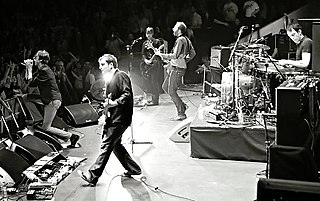
Suede are an English rock band formed in London in 1989 by singer Brett Anderson, guitarist Justine Frischmann, and bassist Mat Osman. Drawing from glam rock and post-punk, Suede were labeled "The Best New Band in Britain" by Melody Maker in 1992, attracting significant attention from the British music press. The following year, their debut album, Suede, reached number one on the UK Albums Chart, becoming the fastest-selling debut album in nearly a decade. It won the Mercury Music Prize and helped propel 'Britpop' as a musical movement, though the band distanced themselves from the label.

The Tears were an English rock supergroup formed in 2004 by ex-Suede bandmates Brett Anderson and Bernard Butler, along with the former Delicatessen and Lodger members Will Foster (keyboardist), bassist Nathan Fisher, and Bernard Butler session drummer Makoto Sakamoto. The duo Anderson and Butler were a much anticipated reunion and music critics praised their first concerts and only album, Here Come the Tears. However, the project was short-lived as they disbanded in 2006, which allowed Anderson to focus on his solo career and the latter Suede's reformation in 2010, Butler became a full-time producer, and Foster worked as additional musician for the Fratellis since 2008.

Brett Lewis Anderson is an English singer best known as the lead singer and primary lyricist of the band Suede. After Suede disbanded in 2003, he fronted the Tears with former Suede guitarist Bernard Butler in 2004–2006, and released four solo albums on which he also played guitar and keyboards. Suede re-formed in 2010; they continue to record and tour.
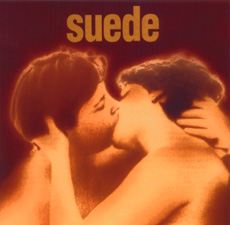
Suede is the debut album by English alternative rock band Suede, released in March 1993 on Nude Records. It was recorded in London at Master Rock studios in late 1992 and early 1993 and was produced by Ed Buller. At the time the fastest-selling debut album in British history in almost a decade, Suede debuted at the top of the UK Albums Chart, won the 1993 Mercury Music Prize, and is often cited as one of the first Britpop records. Displaying a sound of Britishness and glam rock, its music and lyrical content has been compared to the Smiths and early David Bowie.

Coming Up is the third album by English alternative rock band Suede, released on 2 September 1996 through Nude Records. It was the band's first album since the departure of guitarist Bernard Butler, who was replaced by Richard Oakes. Also added to the band was keyboardist Neil Codling. The album was nominated for the 1997 Mercury Prize. A commercial and critical success, Coming Up was the second by the band to reach no. 1 on the UK Albums Chart, producing five top ten singles and receiving a favourable reception at home and in the US. Coming Up was the album that introduced Suede to a worldwide audience, in places such as Europe, Canada and Asia.
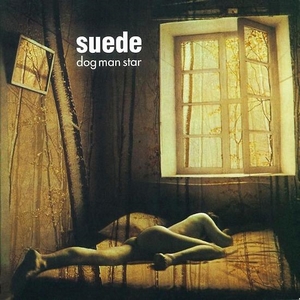
Dog Man Star is the second album by English alternative rock band Suede, released in October 1994 on Nude Records. The album was recorded in London at Master Rock studios in early 1994, and was produced by Ed Buller. It was the last Suede album to feature guitarist Bernard Butler; growing tensions between him and singer Brett Anderson ended with Butler leaving the band before recording was complete. As a result, some tracks on the album had to be finished with the assistance of session musicians.

A New Morning is the fifth studio album by English alternative rock band Suede, released in September 2002. By the time the album was released, public interest in the band had waned, as shown by the poor charting of both the album and singles. Despite this, however, the album received moderate praise from critics. It is the only Suede album not to be released in the US. It was the last studio album released by the band before their seven-year hiatus and reunion in 2010. Before recording took place, keyboardist and guitarist Neil Codling left the band due to his health concern, and later was replaced by former Strangelove guitarist, Alex Lee. As Codling returned to the band for their 2010 reunion, this is their only studio album to have featured Lee.

Head Music is the fourth album by English alternative rock band Suede, released by Nude Records in May 1999. Produced and mixed by Steve Osborne, Head Music features a more electronic sound, which was a new approach for the band. The recording of Head Music was plagued with difficulties such as singer Brett Anderson's addiction to crack, and keyboardist Neil Codling's struggle with chronic fatigue syndrome. The album still went to number 1 on the UK Albums Chart, however, making it the band's third and final chart-topping album. Overall, the album received generally favourable reviews from critics.
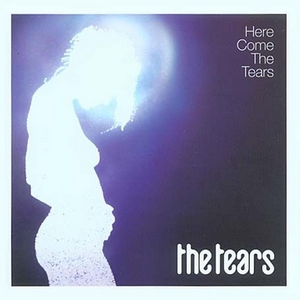
Here Come the Tears is the only studio album by English rock band the Tears. It was released on 6 June 2005 on Independiente. Frontman Brett Anderson and guitarist Bernard Butler had found success together earlier in Suede, with Butler leaving that band after just two albums. Suede's career was on pause when the two reunited for this project. In January 2004, the pair had begun recording music together in secrecy; they decided to form the Tears with bassist Nathan Fisher, drummer Makoto Sakamoto and keyboardist Will Foster. The band had accumulated 18 demos by June 2004, after which, they started recording the album. Sessions were held across various studios with Butler as the producer and finished by October 2004. Here Come the Tears is a pop album that evokes the work of David Bowie, and was compared to Suede's second studio album Dog Man Star (1994).

Sci-Fi Lullabies is a two-disc compilation album by English alternative rock band Suede released by Nude Records on 6 October 1997, consisting of B-sides from the singles that were released from the group's first three albums. It reached no. 9 on the UK Albums Chart, and received universal acclaim on release. In subsequent years, the record has been hailed as one of the finest B-side compilations in popular music.
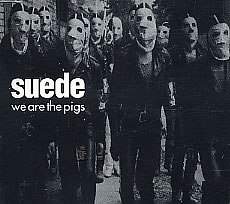
"We Are the Pigs" is the first single from the album Dog Man Star by British band Suede, released on 12 September 1994 through Nude Records.

"Attitude" is a song by Suede, released on 6 October 2003 through Columbia Records. It would be the group's final single before disbanding in late 2003. "Attitude" peaked at number 14 on the UK Singles Chart as a double A-side with "Golden Gun", becoming the group's highest-charting single since "She's in Fashion" in 1999. It also reached the top 20 in Denmark and Spain and peaked at number 50 in Ireland. Some critics viewed the single as an improvement from the group's 2002 album A New Morning. It was announced that a new album was to follow, but this was cancelled when the band announced their break-up only weeks after the single’s release.

Brett Anderson is the first solo release from Suede and the Tears frontman Brett Anderson. It was released on 26 March 2007 by Drowned in Sound Recordings.
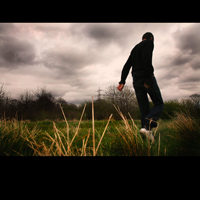
Wilderness is the second studio album by the English singer Brett Anderson.

Slow Attack is the third solo album by the English singer Brett Anderson, and released in 2009. This is Anderson's last solo album before Suede's reformation in 2010.

The Best of Suede is a compilation album by English alternative rock band Suede, released on 1 November 2010.
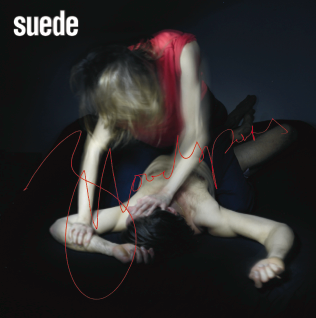
Bloodsports is the sixth studio album by English alternative rock band Suede. It was released on 18 March 2013, via Warner Bros. Records. It is their first studio album since A New Morning in 2002.

Night Thoughts is the seventh studio album by English alternative rock band Suede. Produced by long-time collaborator Ed Buller, the album was released through Warner Music UK on 22 January 2016 to widespread critical acclaim. It was accompanied by a feature film, directed by Roger Sargent. During their 2016 tour the band performed from behind a screen on which Sargent's film was projected during the first half of their set. The album is considered by many critics to be the band's finest work since 1994's Dog Man Star.

The Blue Hour is the eighth studio album by English alternative rock band Suede. The album was released on 21 September 2018.
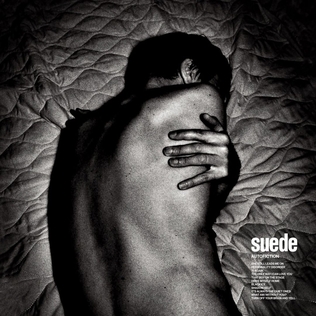
Autofiction is the ninth studio album by English alternative rock band Suede. The album was released on 16 September 2022 via BMG to critical acclaim. It was their first release in four years, following 2018's The Blue Hour and their first since Night Thoughts in 2016 to feature longtime producer Ed Buller. The album was created as a stylistic distinction from their previous reunion work, which had taken on a more orchestral and cinematic scope.



















